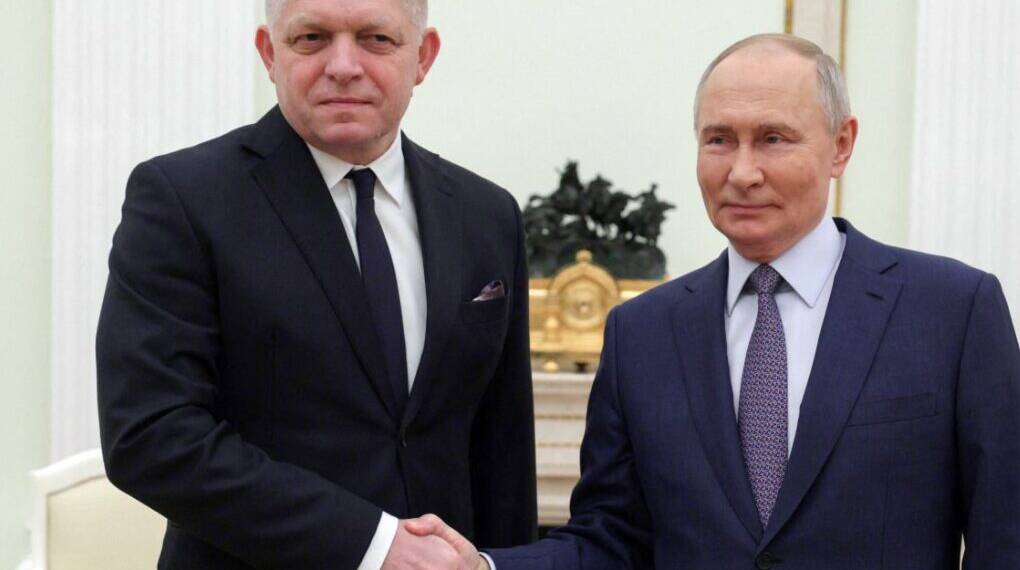During a recent discussion in China on the sidelines of the SCO summit with Russian President Vladimir Putin, Slovak Prime Minister Robert Fico expressed strong dissatisfaction with the European Union’s approach to global affairs.
He compared EU perspectives to being trapped in a limited viewpoint, unaware of broader international developments. Fico highlighted his belief that the EU struggles to adapt to changing world dynamics, and he emphasized Slovakia’s desire to improve ties with Russia.
The encounter occurred alongside events in China, where Slovakia stood out as one of the limited EU nations in attendance. Fico’s views quickly spread through online platforms, sparking widespread discussion.
A Symbol of Narrow Perspectives
Fico used a traditional analogy to illustrate his point about restricted awareness, suggesting that EU decision-making often misses the larger global picture. He voiced frustration over the bloc’s inflexibility in responding to worldwide shifts and openly advocated for normalizing diplomatic and economic relations between his country and Russia.
This imagery draws from longstanding cultural references about confined outlooks, underscoring Fico’s argument that Europe needs to broaden its horizons.
Fico’s Ongoing Push for Russia Ties Amid EU Friction
Since regaining office in 2023, Fico has pursued policies favoring closer connections with Russia, even as the Ukraine conflict continues and EU sanctions remain in place. His administration has paused support for Ukraine and called for negotiated resolutions, frequently conflicting with the EU’s collective position.
Fico has previously made unannounced trips to Moscow, marking him as a rare EU figure engaging directly with Russian leadership since the Ukraine situation escalated. He has also participated in Russian commemorative events despite EU advisories and challenged sanctions by seeking special allowances for Slovakia’s energy needs.
Opponents see these moves as efforts to strengthen his position at home amid domestic issues like governance controversies and public unrest. Fico has described EU restrictions on Russia as creating unnecessary barriers, such as the absence of direct travel options, which he views as outdated divisions.
On the other hand, his advocates appreciate this realistic stance, positioning it as a balance against dominant Western influences.
Wider International Setting and Responses
Fico’s statements align with evolving global alliances, particularly the strengthening bond between China and Russia. His interactions in Beijing, including with Chinese leadership, indicate Slovakia’s aim to explore partnerships outside traditional EU boundaries.
He has stressed his unwillingness to ignore these opportunities. Public feedback online has been divided, with some praising Fico’s forward-thinking approach and suggesting alternatives like aligning with emerging economic groups.
Others worry about repercussions from Western allies and the EU. Various media outlets have covered the event, portraying it as a confrontation with EU closed-mindedness.
This reflects patterns among certain European figures who prioritize sovereign interests over unified EU policies on Russia, though it could further distance Slovakia from the group as Europe reduces reliance on Russian resources.
Potential Effects on EU-Russia Dynamics
Fico’s call for better relations might encourage individual agreements, possibly weakening the EU’s cohesive strategy on restrictions. While Slovakia has negotiated compromises in past sanction decisions, these actions reveal vulnerabilities in the bloc’s unified front.
In a time of global realignment, including expanding international coalitions and ongoing tensions, Fico’s critique highlights internal EU disagreements. The outcome—whether it prompts policy changes or increases Slovakia’s marginalization—will shape Europe’s role in the evolving world landscape.








